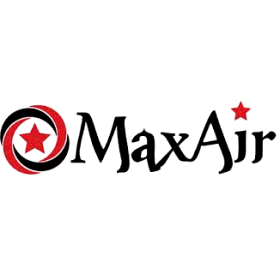Max
Air Ltd, a key player in Nigeria’s aviation sector, is
boosting its operational capabilities by temporarily adding a
wetleased Boeing 737-300 to its fleet. This
strategic move is set to reinforce the airline’s domestic network
during a critical period of heightened demand and operational
adjustments, highlighting the growing role of flexible fleet management
in West Africa’s competitive aviation landscape.
The
aircraft in question has been sourced from NG
Eagle and comes fresh from a comprehensive
C-check maintenance overhaul, ensuring both
reliability and compliance with stringent safety standards. The
737-300, a workhorse of regional aviation, will be stationed with Max
Air for a period of two months. Its addition follows a recent assignment
supporting CAMAIR-CO’s operations in
Cameroon, underscoring the aircraft’s versatility and the
dynamic nature of aircraft leasing arrangements across African
carriers.
For Max Air, the wetlease arrangement
provides critical advantages. Wetleasing—where both the aircraft and
crew are provided by the lessor—enables the airline to
rapidly scale capacity without the
long-term commitments or capital outlay of traditional aircraft
acquisitions. This is particularly valuable in Nigeria’s evolving
market, where fluctuating passenger volumes and seasonal peaks require
agile responses from local operators. The move also ensures that Max Air
can maintain its service reliability and
meet customer expectations, even as it navigates ongoing industry
challenges such as fuel price volatility and supply chain
disruptions.
The temporary addition of the Boeing
737-300 will enhance Max Air’s ability to serve its Kano hub and a wider
network of domestic destinations. Passengers can expect improved
schedule integrity and potentially greater seat availability on popular
routes during this period. The airline’s decision to opt for a recently
maintained aircraft also signals a commitment to safety
and operational excellence, two factors that are
increasingly valued by both local travelers and industry
partners.
This latest development highlights the
importance of fleet flexibility in the
African aviation sector. As competition intensifies and market
conditions shift, airlines are seeking new ways to optimize their fleets
and adapt to rapid change. Wetleasing is emerging as a preferred
solution, enabling carriers to tap into additional capacity quickly,
respond to unexpected operational demands, or cover for aircraft
undergoing maintenance—all without compromising brand standards or
service quality.
The aircraft’s recent deployment with
CAMAIR-CO in Cameroon also illustrates the growing interconnectivity
between African airlines. Cross-border leasing arrangements are
increasingly common, allowing operators to maximize aircraft utilization
and share resources in a way that benefits the entire region. Such
collaborations align with the broader push for greater integration and
cooperation in African civil aviation, as envisioned by initiatives like
the Single African Air Transport Market (SAATM).
Max
Air’s move is likely to have a positive impact on Nigeria’s domestic
aviation environment over the next two months. Enhanced capacity will
help alleviate congestion on key routes, provide travel professionals
with more options for their clients, and further establish Max Air’s
reputation as an adaptable and forward-thinking carrier. For other
African airlines and stakeholders, this example may serve as a blueprint
for leveraging leasing partnerships to manage operational volatility
and sustain growth in a challenging economic climate.
Looking
ahead, the successful integration of the wetleased Boeing 737-300 could
set the stage for similar initiatives across the region. As airlines
continue to prioritize flexibility, safety, and customer service, these
tactical fleet decisions will play a central role in shaping the future
of air travel in Africa—delivering greater reliability and connectivity
for passengers and industry partners alike.
